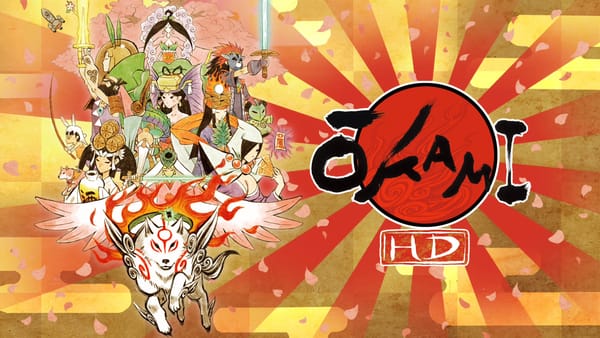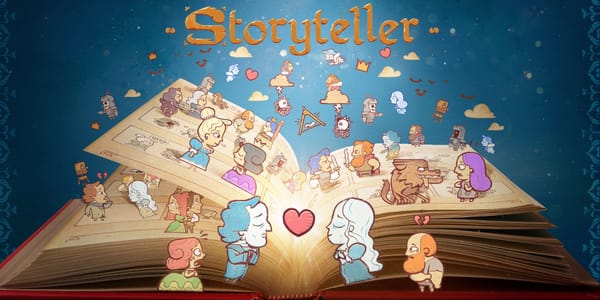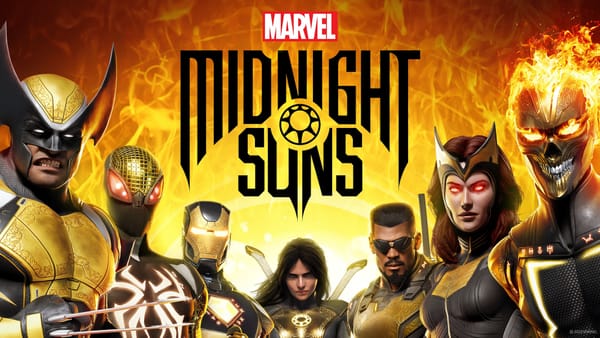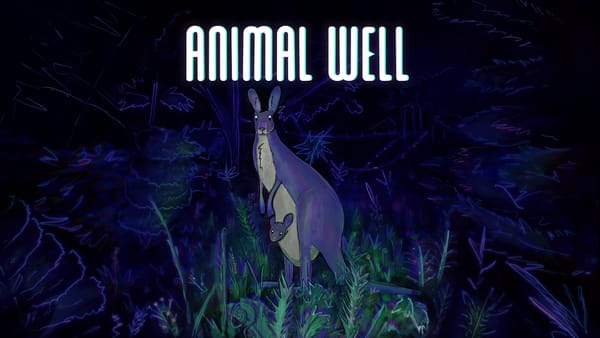Psychonauts 1+2 and your favorite author's next book
No brain drain on these brain games
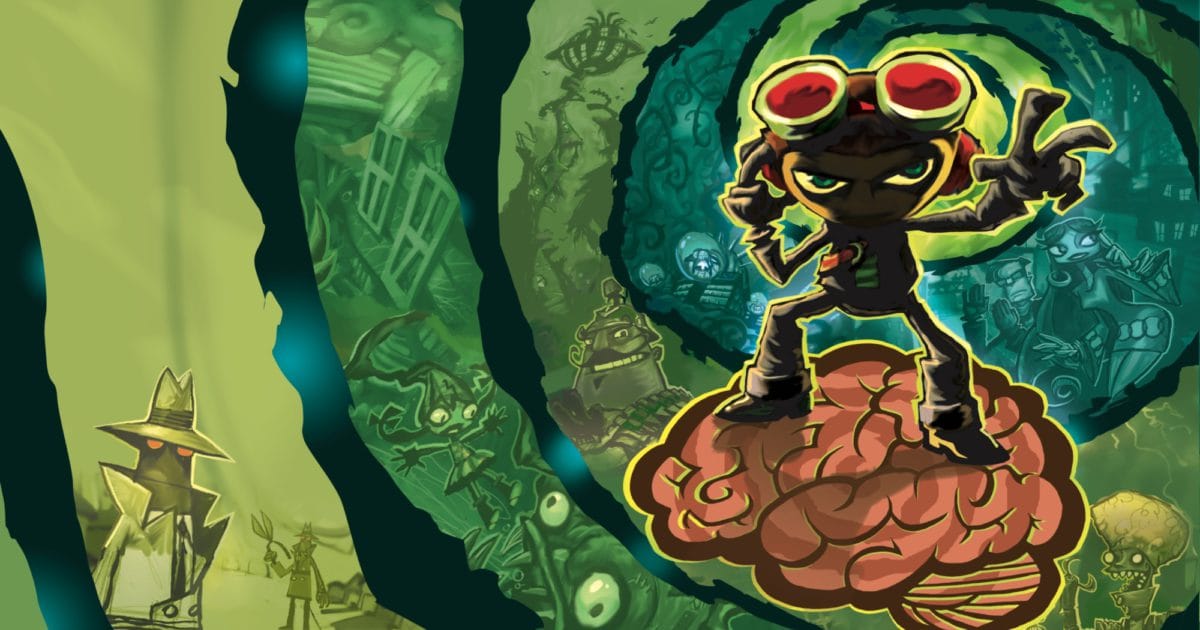
There's a clever bit of dialogue in Psychonauts 2 where they make a joke about how much time has passed between the release of the first and second games, even though, in-fiction, it's been at most a day or two since the events of the first game. For those who played the original when it was first released in 2005, the joke functions as a cathartic acknowledgment of how long fans had to wait for a follow-up. But for me, who'd rolled credits on Psychonauts 1 the night before, the joke also worked, albeit on a more metatextual level. Though I hadn't been waiting for years, there was still something undeniably different about these characters—and for the better.
Ever since I watched PsychOdyssey, the 32-part documentary on the making of Psychonauts 2, I've wanted to play the games to see what all the fuss was about. I actually intended to play both games before writing about PsychOdyssey, truth be told, but I hope you'll forgive me for not necessarily having the time to watch more than 20 hours of a documentary, plus more than 30 hours of gameplay, all for one post. That's, like, half a Baldur's Gate 3. Can you imagine?
I'm very glad I did go back and play them, though, because I see why they've been deemed cult classics. Psychonauts 1, especially, is chock-full of strange set-pieces that stay with you. Whether it's the much-lauded Milkman Conspiracy level (I'll forever laugh at the “Hello, fellow road crew worker” line, delivered with pitch-perfect governmental deadpan) or the kaiju level (which is, uh, an inversion of the trope, let's say), I can only imagine what playing and loving this game must've felt like when it first came out. For those of you who tried desperately to convince your friends to play it while they were busy with Resident Evil 4, God of War, or Call of Duty 2, I salute you. "You have to play this game about mental illness and summer camp." Sure, dude.
There are rough edges to Psychonauts 1, and I'm not only talking about the 2005-ass platforming controls. Some of the later stages are a snooze, including a clever but unfun mechanic involving restaging a play again and again with different moods and lighting, and the visually impactful but rather repetitive Black Velvetopia. There's also the occasional punching down with respect to certain mental illnesses that wouldn't pass the sniff test in 2024, but frankly the whole thing is still so remarkably affirming of people's struggles that it's easy to overlook, especially with the existence of Psychonauts 2, which, while again not perfect, clearly intended to turn the empathy dial up to 11.
Playing Psychonauts 2, I had that feeling I get when I love a book from an author and immediately pick up another by them. I feel instantly more at home than I would starting something from an unknown writer, but I also carry with me the expectations I gained from their previous work. It can be a double-edged sword. In the best cases, it feels like catching up with an old friend. In the worst, it feels like hearing someone repeat themselves. I'm pleased to say that Psychonauts 2 is definitely the former.
Besides the much-improved platforming, it was the game's writing that felt like it'd grown the most in the intervening years. PsychOdyssey touched on the writing process for the game, but certainly not as much as the more technical aspects of development. Still, what glimpses we got of Tim Schafer's writing process, especially his efforts to approach topics like alcoholism with sensitivity and creating three-dimensional queer characters, feel very alive and accomplished in the final product. For my money, the sequel is the less memorable of the two when it comes to level design, but the more convincingly written of the two when it comes to character arcs and thematic development. There are gameplay highlights, to be sure—the homage to Sgt. Pepper's Lonely Hearts Club Band was as fun as it was visually arresting—but the generational leap between 1 and 2 is equal parts polygons and pathos.
I recommend playing both Psychonauts games back to back. They feel like a complete package and speak to each other in interesting ways. I do not recommend playing Psychonauts 2 without playing the original, which was something I was tempted to do at one point. It's not that you won’t get it (you will), but there’s a distinct pleasure, separate from the actual playing of the games, that comes from seeing an idea evolve over the course of years, returned to with a renewed sense of what worked in the original and what needed revision. So, play both, and play them in sequence if you can. They regularly go on sale as a bundle for like 20 bucks. If you've ever had the experience of reading another book by an author you love, you'll know the feeling I'm describing here. It's cozy. It's rewarding. And it leaves you Googling when the next one is supposed to come out.
Bonus Links
- Though I haven't yet finished it, I've been enjoying a slow watch on my lunch breaks of Noah Caldwell-Gervais's video essay "How Many Clicks Does It Take To Get to the Center of Diablo?" Though I'm not the biggest Diablo-head (on Backlog, that title belongs to Nicky Benivegna—see her essays on Diablo II and IV), I love when folks go deep on the behavioral aspects of gaming, and Caldwell-Gervais goes deep. Join me in watching this four-hour video essay, fifteen minutes at a time.
- I recently got a Kindle for the first time after resisting the concept of ebooks, and, yeah, wow, I'm Kindle-pilled now. Who knew that a gamer would be so motivated by a "percentage read" stat? One of the first things I read on it was Jason Schreier's Blood, Sweat, and Pixels, which was a terrific survey of the landscape of game development. My favorite chapter by far was on the development of Stardew Valley, which explored Eric "ConcernedApe" Barone's creative process and struggles with impostor syndrome. I'll probably write a Backlog on this book at some point, so look out for that. In the meantime, do folks have any good videogame book recommendations? Let me know in the comments.


